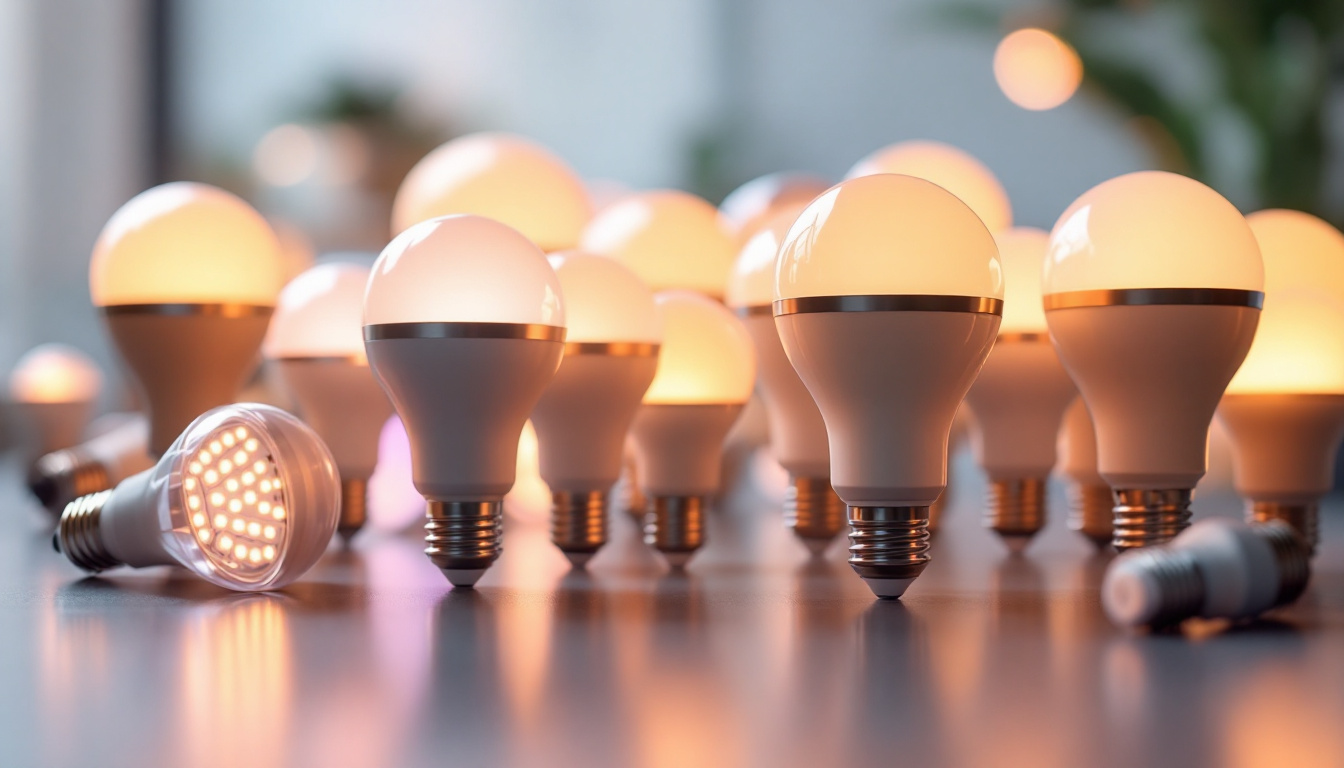

In the realm of lighting installation and design, compliance with industry standards and regulations is paramount. For lighting contractors, understanding the complexities of compliance can not only ensure the safety and satisfaction of clients but also enhance the reputation and reliability of their services. This article delves into the essential aspects of compliance that lighting contractors must be aware of, including regulations, standards, and best practices.
Compliance in the lighting industry is not merely a bureaucratic hurdle; it is a critical component that affects safety, efficiency, and environmental impact. The implications of non-compliance can be severe, ranging from legal repercussions to safety hazards.
Safety is the foremost concern in any construction or installation project. Lighting systems that do not comply with safety standards can pose risks such as electrical fires, electrocution, and inadequate illumination, which can lead to accidents. Compliance ensures that the materials and installation methods used meet the required safety standards, protecting both workers and end-users. Moreover, regular safety audits and inspections are essential practices that help identify potential hazards before they escalate into serious issues. By adhering to safety protocols, companies not only safeguard their employees but also enhance their reputation within the industry, fostering trust among clients and stakeholders.
Various regulatory bodies govern the lighting industry, setting forth standards that must be adhered to. These regulations often vary by region, necessitating that contractors stay informed about local, state, and national codes. Non-compliance can result in fines, project delays, and even the revocation of licenses. Additionally, staying compliant can open up opportunities for funding and incentives, as many governments offer grants or tax breaks for projects that meet or exceed regulatory standards. This financial support can significantly offset costs, making compliance not just a legal obligation but also a strategic advantage for businesses looking to innovate and expand their operations.
Furthermore, the push for sustainability has led to the introduction of new regulations focused on energy efficiency and the reduction of carbon footprints. Lighting solutions that comply with these evolving standards often incorporate advanced technologies such as LED systems and smart lighting controls, which not only reduce energy consumption but also enhance user experience. By embracing these innovations, companies can position themselves as leaders in the industry, demonstrating a commitment to environmental stewardship while also appealing to a growing market of eco-conscious consumers.
Understanding the key regulations and standards is essential for lighting contractors. This knowledge not only helps in compliance but also in providing clients with informed recommendations. By staying abreast of these regulations, contractors can enhance their credibility and build trust with clients who are increasingly concerned about safety, efficiency, and sustainability in their lighting choices.
The National Electrical Code (NEC) is a crucial standard that outlines the safe installation of electrical wiring and equipment. For lighting contractors, familiarity with NEC guidelines is vital, as these regulations dictate everything from wiring methods to fixture placement. Adhering to NEC standards helps ensure that installations are safe and reliable. Additionally, the NEC is updated every three years, which means that contractors must engage in continuous education to keep their practices aligned with the latest safety measures and technological advancements. This ongoing learning not only protects the contractor from potential liabilities but also positions them as knowledgeable professionals in the eyes of their clients.
Energy efficiency is a growing concern in the lighting industry, with regulations such as the Energy Policy Act and various state-level initiatives promoting the use of energy-efficient lighting solutions. Contractors should be well-versed in these standards to recommend products that not only comply with regulations but also offer cost savings to clients through reduced energy consumption. Moreover, understanding the benefits of LED technology, for instance, can empower contractors to advocate for long-term savings and lower carbon footprints, making their recommendations more compelling. As energy costs continue to rise, clients are increasingly looking for solutions that not only meet their immediate needs but also contribute to a more sustainable future.
With an increasing focus on sustainability, environmental regulations play a significant role in the lighting industry. These regulations may govern the disposal of hazardous materials, such as certain types of light bulbs, and the use of environmentally friendly products. Contractors must stay updated on these regulations to ensure compliance and promote sustainable practices. Additionally, many clients are now seeking certifications like LEED (Leadership in Energy and Environmental Design) for their projects, which often require adherence to specific environmental standards. By being knowledgeable about these certifications and the associated regulations, contractors can not only help clients achieve their sustainability goals but also differentiate themselves in a competitive market. This proactive approach can lead to new business opportunities and foster long-term relationships with environmentally-conscious clients.
Achieving compliance is not just about knowing the rules; it also involves implementing best practices throughout the project lifecycle. Here are some strategies that lighting contractors can adopt.
Compliance standards are continually evolving, making ongoing education and training imperative for lighting contractors. Regularly attending workshops, webinars, and industry conferences can help contractors stay informed about the latest regulations and technologies. Additionally, certification programs can enhance credibility and expertise. Engaging in peer-to-peer learning opportunities, such as mentorship programs or study groups, can also foster a culture of compliance within organizations. By sharing experiences and insights, contractors can learn from each other’s successes and challenges, further enriching their understanding of compliance requirements.
Maintaining thorough documentation is essential for demonstrating compliance. This includes keeping records of project plans, installation procedures, and any inspections or certifications obtained. Proper documentation not only aids in compliance but also provides a valuable reference for future projects. Implementing digital tools for record-keeping can streamline this process, allowing for easier access and organization of documents. Cloud-based solutions can also facilitate collaboration among team members, ensuring that everyone has access to the most current information and can contribute to maintaining compliance throughout the project lifecycle.
Collaborating with industry experts, such as electrical engineers and compliance consultants, can provide valuable insights into complex regulations. Establishing relationships with these professionals can help contractors navigate compliance challenges more effectively and ensure that all aspects of a project meet the necessary standards. Furthermore, participating in industry forums or online communities can expand a contractor’s network, offering opportunities to discuss compliance issues and share best practices. These interactions can lead to innovative solutions and strategies that might not have been considered otherwise, ultimately enhancing the contractor’s ability to deliver compliant and high-quality projects.
While compliance is crucial, it is not without its challenges. Lighting contractors often face various obstacles that can complicate adherence to regulations.
The lighting industry is experiencing rapid technological advancements, particularly with the rise of smart lighting solutions. While these innovations offer numerous benefits, they can also introduce new compliance challenges. Contractors must stay informed about how these technologies align with existing regulations and standards.
Another significant challenge is the variation in regulations across different jurisdictions. What is compliant in one area may not be in another, requiring contractors to conduct thorough research for each project location. This can be time-consuming and may lead to confusion if not managed properly.
Budget constraints can also hinder compliance efforts. Clients may prioritize cost savings over compliance, leading to potential shortcuts in installation or the use of subpar materials. Lighting contractors must balance client expectations with the necessity of adhering to regulations, often requiring effective communication and negotiation skills.
As the lighting industry continues to evolve, so too will the landscape of compliance. Emerging trends and technologies will shape the future of regulations and standards.
The integration of smart lighting systems and the Internet of Things (IoT) is revolutionizing the industry. These technologies offer enhanced control and energy efficiency but also raise new compliance questions. Contractors must be prepared to adapt to new regulations that govern these innovations, ensuring that installations are both compliant and functional.
With a growing emphasis on sustainability, future compliance standards are likely to focus more on environmental impact. Lighting contractors should anticipate stricter regulations regarding the use of sustainable materials and energy-efficient technologies. Staying ahead of these trends will be crucial for maintaining compliance and meeting client expectations.
As safety remains a top priority, future compliance efforts will likely emphasize rigorous safety standards. Contractors should prepare for more comprehensive safety training and certification requirements, ensuring that all personnel are well-equipped to handle the complexities of modern lighting installations.
Compliance in the lighting industry is a multifaceted challenge that requires diligence, education, and proactive strategies. Lighting contractors must navigate a complex landscape of regulations and standards to ensure the safety and satisfaction of their clients. By staying informed about key regulations, adopting best practices, and preparing for future trends, contractors can position themselves as reliable and knowledgeable professionals in the industry.
Ultimately, compliance is not just about adhering to rules; it is about fostering trust and delivering quality service. By prioritizing compliance, lighting contractors can enhance their reputation, ensure client safety, and contribute to a more sustainable future in the lighting industry.
Ready to elevate your lighting installations while adhering to industry compliance? LumenWholesale is here to support your needs with spec-grade lighting products that meet the highest industry standards. Say goodbye to inflated markups and hello to superior lighting solutions at unbeatable wholesale prices. With our commitment to quality, affordability, and convenience, you can trust us to provide the reliable, high-performance lighting your projects deserve. Plus, enjoy the benefits of bulk buying with the ease of free shipping. Don’t compromise on compliance or value—choose LumenWholesale for your lighting needs. Wholesale Lighting at the Best Value is just a click away.

Discover essential insights for lighting contractors on harnessing solar power to illuminate spaces efficiently.

Discover the key differences between LED diffuser panels and regular lighting options with insights from seasoned contractors.

Discover essential insights into Bluetooth control systems tailored for lighting contractors.

Discover the rising significance of MR16 LED globes in the lighting industry.
Get notified when NEW deals are released.
Optimize your budget with wholesale discounts.
Only top-quality, specification-grade lighting products.
No additional costs at checkout - what you see is what you pay.
We understand the unique needs of contractors.